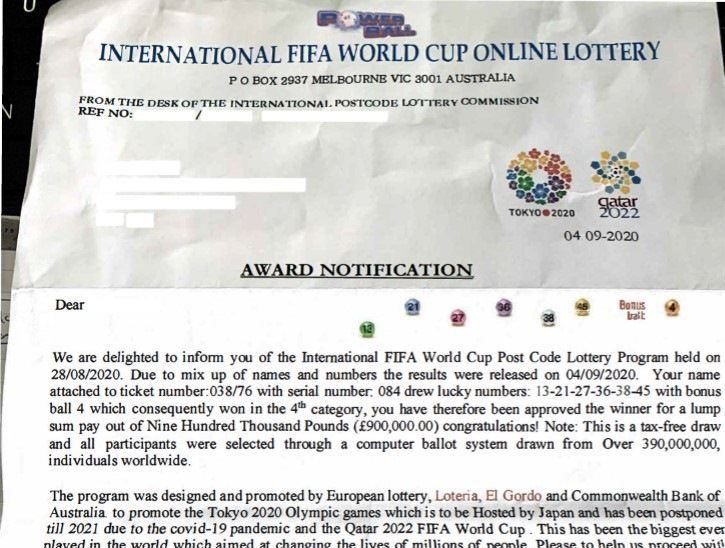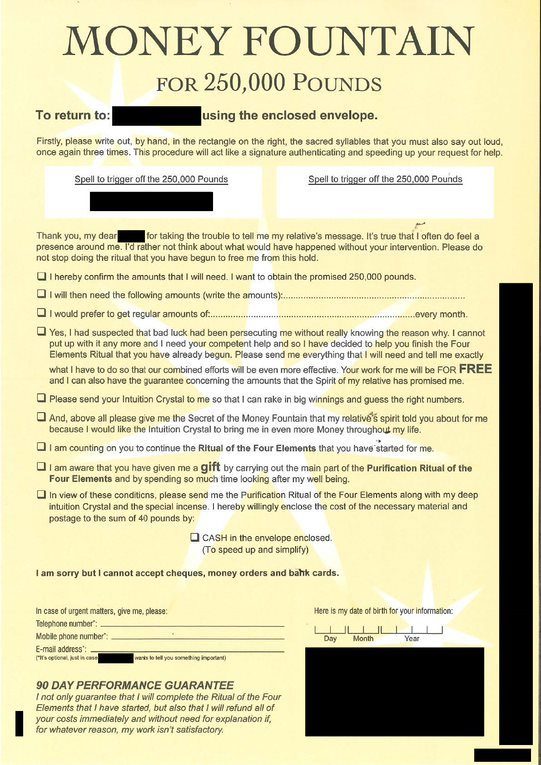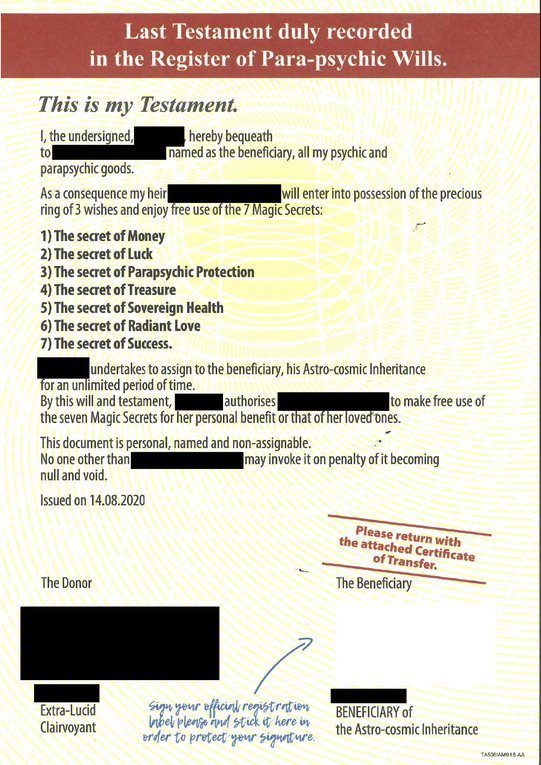With the World Cup in full swing, scams are probably the last thing on any football fanatic’s mind – which fraudsters may be counting on.
According to National Trading Standards (NTS), a rise in World Cup lottery scams would follow a pattern they have seen follow previous major tournaments.
The organisation has launched a new campaign, urging members of the public to send in their scam mail to help the NTS gather more information.
‘HUGE cash prize!’
NTS expects to uncover a rise in World Cup lottery scams claiming to be affiliated with the event, in am attempt to fool fans.
Their tactics include mailing out official-looking scam letters, often complete with official logos and enticing phrases asking recipients for money to claim their “huge” cash prize.
 NTS
NTSCriminals use a wide range of measures to create an illusion of legitimacy and give people false hope of a big pay-out or a better life.
Scam mail often includes a competition question to hook recipients into the scam. Some of the tricks used include:
- Personalising mail using the receiver’s name throughout – including on images, such as certificates and cheques
- Artwork that appears to be genuine – for example, the use of a seal or crest and fonts that suggest they come from a financial institution or official body
- Words like “guaranteed” or “100% genuine”, as well as mentioning precise amounts of money
- Signatures from officials with senior ranking titles and identification numbers
- A sense of urgency, such as “reply within seven days” or “before the deadline”
‘Clairvoyance’ or ‘psychic’ scams
In 2022, more than 80% of scam mail sent in to the NTS Scams Team has been clairvoyant scams – ones where people are promised more detailed readings if they send money.
 NTS
NTSNTS says that organised criminal groups behind mail scams are constantly switching tactics and it is hoped this year’s anti-scam campaign – Scamnesty – will uncover previously unknown scam types.
Other postal scams regularly seen include fake overseas lotteries or prize draws, bogus health cures and investment scams.
With elderly and vulnerable people more likely to receive scam mail, people are also being urged to chat to older relatives and friends about Scamnesty.
Professional carers are also encouraged to check-in with their clients, letting them know about the campaign and perhaps helping them to post their scam mail.
‘Impact of scams is devastating’
“The impact on victims who get lured into responding to scam mail is truly devastating,” said Lord Michael Bichard, chair of NTS.
“Once they send money to one, more and more mailings land on the doorstep and a terrifying cycle can begin, leading not only to crippling financial loss, but declining physical and mental health.
“This crime can destroy families as repeat victims often isolate themselves from those trying to help. Please, send in your scam mail so we can protect your loved ones, and stop the harm these criminals cause.”
 NTS
NTSSo far this year, the NTS Scams Team has returned more than £65,000 to people who paid money to criminals, saved victims more than £950,000 through interventions via home visits, and saved taxpayers nearly £23m overall by disrupting the work of scammers.
“The criminals behind these letters prey on the most vulnerable in our society, and at this time of year those that feel isolated and lonely are more inclined to respond to scam mail arriving out of the blue,” said John Herriman, chief executive at the Chartered Trading Standards Institute (CTSI).
“Our lead officers have witnessed horrific cases whereby victims have lost over £100,000 to scam mail, it’s a terrible cycle that some find it hard to get out of as the scammers often befriend their victims to build a level of trust.
“Raising awareness is key and CTSI fully supports this fantastic initiative and we encourage our members to take part in ‘Scamnesty’ to help stop these crooks in their tracks.”
Follow STV News on WhatsApp
Scan the QR code on your mobile device for all the latest news from around the country


 NTS
NTS

























